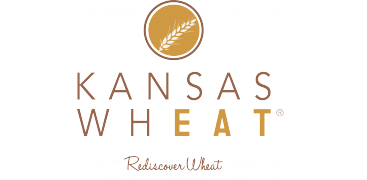In Whom Do You Trust?
October 22, 2015
 Dr. Oz may have more than 3.8 million followers on Twitter, but that does not mean consumers trust his advice. To illustrate, Dr. Oz ranked next to last in level of trust on information about genetically modified food in a 2015 survey conducted by the Center for Food Integrity (CFI).
Dr. Oz may have more than 3.8 million followers on Twitter, but that does not mean consumers trust his advice. To illustrate, Dr. Oz ranked next to last in level of trust on information about genetically modified food in a 2015 survey conducted by the Center for Food Integrity (CFI).
CFI has surveyed consumer attitudes on food issues since 2007. In the most recent survey, entitled “Cracking the Code on Food Issues: Insights from Moms, Millennials and Foodies,” CFI asked respondents to rate their level of trust of 11 different sources on various issues, including genetically modified foods. Dr. Oz came in next to last overall. More specifically, he ranked dead last among Millennials and foodies.
Why does this matter to wheat? While there is no genetically modified wheat currently available in the marketplace, the technology is an important tool used in research to help develop new wheat varieties that have increased resistance to disease and additional tolerance to heat and drought.
Furthermore, Dr. Oz is not likely to sport an “I Heart Gluten” t-shirt. He helped introduce the world to Dr. William Davis, author of “Wheat Belly” and regular guest on The Dr. Oz Show. In short, Dr. Davis blames the obesity epidemic in the United States on Dr. Norman Borlaug’s development of semi-dwarf wheat and overall breeding efforts over recent history. (To fact check the book, check out this analysis by Dr. Julie Miller Jones.)
Dr. Davis’s argument that wheat researchers have modified wheat in such a way that is makes Americans fat is ironic considering CFI’s results on who consumers trust the most on issues like genetically modified food – university scientists, mom scientists and farmers. In other words, consumers trust information directly from the source about their food and how it is grown, not a pseudo-scientist or a television host.
“It goes to show that ‘celebrity’ doesn’t equal ‘credibility,” stated CFI’s article on the survey results. “The voices of farmers, mom scientists and university researchers matter.”
Kansas wheat farmers may not have millions of followers, but we are ready to answer questions from anyone who wants to know how the wheat on our farms is developed, grown, processed or baked. That is why we organize events like the National Festival of Breads to bring the nation’s top bakers to the farm and participate in efforts like the Kansas Farm Food Connection .
Furthermore, we encourage everyone to Rediscover Wheat, whether that means learning more about the new technologies used by wheat researchers, meeting the wheat farmers who grow more and better wheat with less impact on the environment, learning about what “our daily bread” looks like around the world or how those amber waves of grain play an important role in a healthy and nutritious diet.
If our resources are not enough, give us a call or come visit the Kansas Wheat Innovation Center in Manhattan, Kansas. Our university researchers, farmers and staff are happy to answer your questions on any topic.
By Julia Debes


